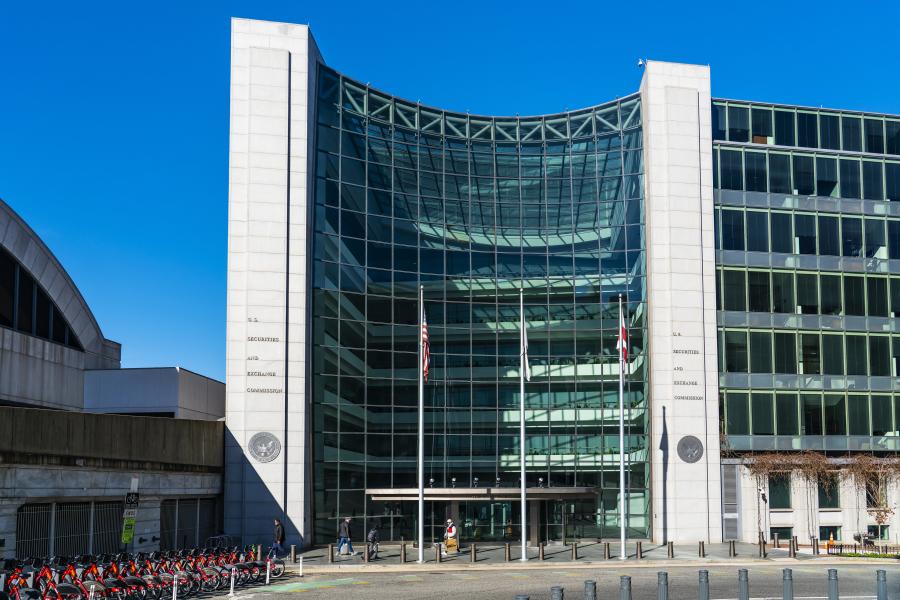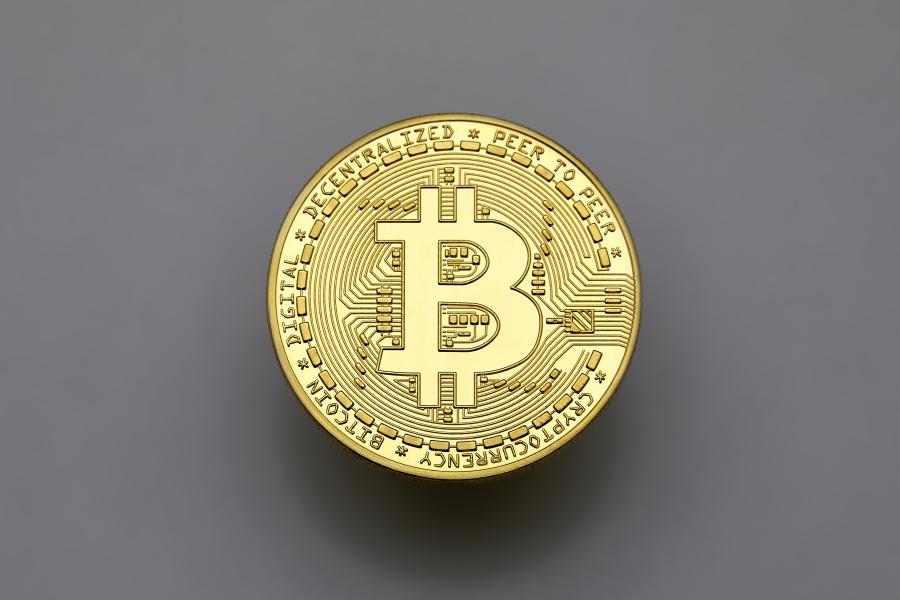US versus EU: Giants fighting for regulatory clarity
This week, our blockchain experts assessed the following topics:
- US versus EU: Giants fighting for regulatory clarity
- Crypto regulation: A hot topic in the rest of the world
- Another domino, another country: Bhutan is mining Bitcoin
- Digital assets and Africa: Things are moving fast
- CBDC – Remedy or Nightmare?
Our bi-weekly Crypto Industry Report provides you with valuable information on the global crypto industry - picked and analysed by our blockchain experts.
US versus EU: Giants fighting for regulatory clarity
It is official now: The European Parliament voted overwhelmingly in favour of Markets in Crypto Assets (MiCA), legislation that will guide the crypto sector in all 27 European Union member states. 517 parliament members voted for it, while 38 voted against it. This approval makes Europe the first continent with comprehensive rules for cryptocurrencies. Also, it means that all EU member states will have unified crypto regulations. So, if a crypto business is approved in one EU member country, it could easily expand operations to another member state. The EU’s milestone was lauded by Binance as well as Kraken and Coinbase.
What follows next is the approval of the legislation by all 27 member countries. According to Mairead McGuinness, the European Financial Services Commissioner, MiCA will come into force after all 27 countries have approved it. However, special requirements will take effect over time. For instance, stablecoin regulations are projected to be put in effect by July 2024.
While MiCA is putting Europe ahead of the rest of the world in crypto regulation, critics believe the legislation is outdated. “Important regulatory challenges remain unaddressed and new legislative actions are urgently needed to complete MiCA with the missing pieces,” said Ernest Urtasun, a shadow representative on MiCA.
Still, as Europe makes major steps towards a unified crypto regulation, the US is pondering its preferred modus operandi. So far, the country hasn’t provided any clarity on which regulator is responsible for crypto. The SEC and the CFTC are also not on the same page about which cryptocurrencies are securities and which are commodities. Amidst this confusion, the US is trying to play catch up with plans to work on legislation for the crypto sector in the next two months. In the past, the country has created several draft bills on crypto regulation that have since stalled. However, this new legislation could be signed into law by President Biden in the next twelve months, according to the chair of the House Financial Services Committee, Patrick McHenry. This positive news is greatly needed at a time when the SEC is aggressively pursuing crypto companies it considers non-compliant.
If this legislation offers the much-needed regulatory clarity, it could prevent crypto businesses from leaving the US. For example, Coinbase’s CEO Brain Armstrong has said the company could move out of the US if regulatory clarity isn’t attained. As a first step, the US’ most popular exchange has just launched an international version (off-short entity) for trading perpetual futures on Bitcoin and Ethereum.
Crypto regulation: A hot topic in the rest of the world
The UK is also working on crypto regulations of its own. The country’s Treasury published a consultation and call for evidence paper in February 2023 outlining its proposed rules for cryptocurrencies. It also acknowledged that the proposed rules need to be amended to accommodate the uniqueness of crypto assets. a16z Crypto and Polygon Labs are some of the companies that have responded to the questions in the consultation paper. The deadline for submitting responses was April 30.
Demonstrably, Brian Quintenz from a16z Crypto has asked the UK not to take the same regulatory approach as the US. His opinion is that US regulators are presently stifling innovation in the crypto sector and regulating the industry heavy-handedly.
On the positive side of things, Hong Kong is creating a more crypto-friendly environment compared to the US. The region’s Securities and Futures Commission (SFC) proposed regulatory guidelines requiring virtual asset service providers (crypto exchanges) to acquire licenses before kickstarting operations. And it might even be the case that retail access to high-liquid crypto could be supported. It is important to note that the regulatory requirements are still open for consultation and more clarity should be provided during this month of May.
It’s undeniable: Proper regulation of crypto assets around the globe will be essential. As such, it might also become a significant factor during upcoming elections. Based on survey results from crypto exchange Bitget, the Gen Z age group is likely to care the most about crypto regulations while voting, followed by millennials, Gen X, and Baby Boomers.
Another domino, another country: Bhutan is mining Bitcoin
The Kingdom of Bhutan has confirmed it has been secretly mining bitcoin for years via its investment arm Druk Holding and Investments (DHI). The country located in Eastern Himalayas has a high hydropower capacity which is more than enough for its small population. In fact, Forbes reports that Bhutan produces the same amount of electricity per capita as the US, which is a much larger country. So, it is no wonder that Bhutan is a perfect location for bitcoin mining.
Bhutan joins El Salvador to become the second country running a state-owned bitcoin mining operation. It has been mining the PoW cryptocurrency since April 2019, when it was worth about $5,000. Bhutan has also invested heavily in the mining operation. Last year alone, the country spent $142 million on computer chips, which was 15% of its $930 million yearly budget. In 2021, Bhutan imported chips worth $51 million.
According to DHI’s CEO Ujjwal Deep Dahal, Bhutan’s mining operation pays for itself, where mined BTC is sold and used to pay electricity bills and buy mining equipment. This shows that Bitcoiners are correct when they say incentives are there for bitcoin mining operations powered by renewable energy. DHI is also HODLing bitcoin in the long term with the hopes that its value will rise after the 2024 halving event.
Digital assets and Africa: Things are moving fast
Meanwhile, in Africa, the Reserve Bank of Zimbabwe (RBZ) has announced plans to issue a gold-backed digital token on May 8, 2023. The token will be backed by physical gold held by the bank. RBZ believes that the digital currency will help Zimbabweans hedge against the local currency’s volatility.
While the effort is laudable, Zimbabweans will still have to continue trusting a centralised authority, which is to blame for the monetary issues it has faced for decades, with their money. Unlike bitcoin, which is more trust-minimised, the gold-backed token still requires the conventional level of trust.
In other news, the Central African Republic (CAR) has repealed the legislation that made bitcoin legal tender. This development comes about a year after the country made BTC an official currency. The original move was disapproved by the Bank of Central African States, which serves members of the Economic and Monetary Community of Central Africa. There were also suspicions that CAR made bitcoin legal tender to help Russia, which it is closely connected to, use crypto to bypass sanctions.
In Nigeria, the SEC will allow licensed digital exchanges to hold tokenised offerings of assets backed by debt, equity, and property. This means fintech companies can be licensed to issue tokenised coins and serve as crowdfunding intermediaries, digital sub-brokers, and fund managers. However, the regulator will not permit tokenised offerings of crypto-backed assets, and crypto exchanges will not be registered. The country, therefore, remains anti-crypto. In 2021, Nigeria banned commercial banks from facilitating transactions for crypto companies.
Lastly, the African island state Mauritius plans to launch the pilot phase of its CBDC, the Digital Rupee, in November 2023. The country has been engaging with the IMF since the preliminary stages of its CBDC journey. According to the governor of the Bank of Mauritius Harvesh Kumar, the Digital Rupee will be interest-free and fully involve commercial banks.
CBDC – Remedy or Nightmare?
In light of the recent banking crisis in the US, some experts believe CBDCs could be the solution. In their opinion, a CBDC would give depositors interest-bearing accounts at the central bank, making bank runs impossible. “As the lender of last resort, the central bank could issue as much money as needed if depositors wanted to withdraw their money simultaneously,” says Jan Eeckhout of Pompeu Fabra University.
Nonetheless, CBDCs could pose privacy risks, restrict individual financial freedoms, and expand current inequalities by shutting out those without access to digital devices and the internet. Also, the IMF has admitted that the impact of retail CBDCs is unknown, and thus their consequences are hard to predict.
Kristalina Georgieva, the Managing Director of the International Monetary Fund (IMF), recently summarised that they are working with a few dozen of countries when it comes to CBDCs. So far, the findings have been that there seems to be a stronger policy rationale for the implementation of wholesale CBDCs and that their actual implementation might also be more straightforward from a legal perspective as no legislative approval could be needed.
Share post

Related Posts

To be continued: SEC pushes back at Coinbase
SEC pushes back against Coinbase's claim of no regulatory jurisdiction, stating the crypto exchange knowingly violated securities laws. Meanwhile, Gemini, owned by the Winklevoss twins, files a lawsuit against Digital Currency Group and CEO Barry Silbert alleging fraud and deception following the collapse of a lending venture. The Bank for International Settlements survey reveals that 93% of central banks are working on Central Bank Digital Currencies (CBDCs) which are seen as potential geopolitical policy tools and a challenge to the dollar's dominance. The race for a Bitcoin ETF intensifies, with BlackRock refiling its application featuring Coinbase as the market surveillance partner, as the Grayscale Bitcoin Trust's discount to net asset value narrows, potentially indicating the transformation into a proper ETF.

BlackRock fever: The ETF filing spree and institutional appetite
BlackRock filed for a Bitcoin ETF with the SEC, inspiring similar applications from firms like WisdomTree, Invesco, and Fidelity, and boosting Bitcoin's value. Traditional finance institutions such as Fidelity and Nasdaq are showing increased interest in crypto, with moves towards exchange and custody services. The defunct crypto exchange FTX, under new CEO John Ray III, is planning a potential revival after recovering significant assets. Meanwhile, the IMF is developing a global CBDC platform for cross-border transactions and DAI, a major stablecoin, is diversifying its backing from USDC to include real-world assets.

SWIFT explores blockchain interoperability
SWIFT has partnered with Chainlink to experiment with leveraging its infrastructure for transferring tokenized value across blockchain networks. The trials will address interoperability, regulatory challenges, and operational drawbacks for financial institutions in a blockchain environment. Chainlink will provide connectivity between private and public blockchains. SWIFT's findings will be published later this year.

China wants an Internet 3.0, while Hong Kong gears up for crypto trading launch
China is striving for advancement in Internet 3.0 technologies, with Beijing's white paper outlining plans to invest in the development of the metaverse and Web3 tech such as non-fungible tokens, but not cryptocurrencies due to the country's previous ban. Meanwhile, Hong Kong is launching its new crypto trading regulations, allowing retail investors to participate from June 1, 2023, with exchanges like Huobi Hong Kong beginning to offer spot trading to retail and institutional clients. Furthermore, the Cybersecurity and Technology Crime Bureau of the Hong Kong Police Force is launching a metaverse platform, 'CyberDefender', to educate the public about potential threats and crime prevention in the metaverse.

BRC-20: Innovating on Bitcoin is the new cool
A new Bitcoin “token standard” called BRC-20 is the hottest thing right now in the crypto space. It was introduced in March 2023 by a pseudonymous person called Domo. Bitcoin Request for Comment 20 (BRC-20) is an experiment that brings fungible tokens to the Bitcoin blockchain using the Ordinals protocol. Ordinals rely on ordinal theory, enabling the identification and tracking of individual satoshis within Bitcoin's existing supply, while also allowing them to be inscribed (associated) with data. Through this technique, satoshis (sats) are given ordinal numbers starting with zero. Anyone can add a script file to a sat to create and transfer a BRC-20 token on the Bitcoin blockchain. BRC-20 tokens are created using three functions: deploy, mint, and transfer.

Ethereum: Another milestone reached with the Shanghai Update
On April 12, 2023, Ethereum successfully executed the planned Shanghai update also known as Shapella. The upgrade allows validators to unstake their staked ETH and withdraw their rewards, as well as staked ether if chosen. Now that another level of uncertainty has waned for the biggest smart contract blockchain, this new feature could attract more investors to stake their ether.

CFTC versus Binance:
Clash of the titans
The world’s leading crypto exchange by volume, Binance, alongside its CEO, Changpeng Zhao, and ex-Chief Compliance Officer, Samuel Lim, are being sued by the US Commodity Futures Trading Commission (CFTC).

Stablecoin USDC briefly lost its
peg. What do we learn from this?
One of the top stablecoins by market cap, USD Coin (USDC), de-pegged briefly from the US dollar on March 11 following the collapse of Silicon Valley Bank (SVB). Circle, the stablecoin’s issuer, held $3.3 billion in USDC reserves with the bank, which caused panic as investors rushed to withdraw their funds, assuming USDC could implode because of insufficient backing. However, the amount represented less than 8% of the stablecoin’s reserves.

Ethereum Shanghai upgrade pushed to April: Will there be too much selling pressure?
Ethereum stakers have been eagerly awaiting the Shanghai upgrade, which will enable them to withdraw their staked ether. Stakers’ funds have been locked since Ethereum introduced the proof-of-stake Beacon Chain in December 2020. The upgrade was originally slated to take place sometime in March but was pushed by about two weeks to April during a recent execution layer meeting.

Are regulators trying to make up for it by cracking down?
Following the infamous events of 2022, US regulators are turning up the heat on crypto services and products in 2023. One of the services they have targeted recently is custodial crypto staking, a process whereby customers have a financial service provider lock up their coins with a blockchain protocol over a certain period of time in exchange for rewards. This comes as no surprise since the SEC’s chairman, Gary Gensler, previously said that crypto staking looks very similar to lending. US crypto exchanges that offer this service are, therefore, in the SEC’s line of fire.